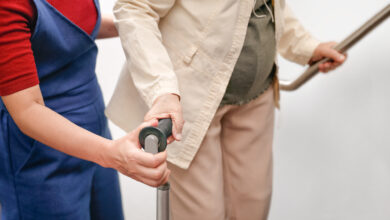Humans better than robots at surgery

Robots don't always have the upper hand - new studies suggest that humans make better surgeons.
As hospitals spend millions on robotics and new technology, studies by Leeds University and Stanford University have revealed that robots used in medical settings were not able to reduce side effects or improve a patient's health while taking longer to get the job done when compared with their human counterparts.
The results show that highly-trained surgeons armed with the simple scalpel performed faster than machines, at a lower cost, and made less mistakes.
Dr Michael Wong, one of Australia’s leading surgeons and an advocate for freehand surgery, said a skilled and experienced surgeon would produce the best outcomes in the operating theatre.
“Younger, inexperienced surgeons have come to rely on technology too much but we’ve seen that it is not as accurate as a surgeon's hands performing the operation," he said.
“Using machines actually slows me down, which is why I prefer freehand surgery. And if a surgeon has to rely on a machine to operate, what happens when the machine isn’t available or is a different model to the one the surgeon is used to? This actually happens quite a lot and is becoming more common.
“It’s much better if we encourage and educate younger surgeons to perform the surgery themselves and not rely on technology, because it really isn’t better than freehand surgery," Dr Wong said.
“Yes, technology is can be a useful aid but it can’t replace the surgeon; It’s like having autopilot on an aeroplane to help the pilot fly the plane but the pilot must be able to fly freehand because if or when the technology fails then that human needs to take control.”
Robots have been increasingly used in surgery for the last 15 years, and can cost millions of dollars apiece.
The newly released study was conducted over 12 years, and analysed the clinical outcomes of 24,000 kidney operations.
The study found that 47 per cent of robots took more than four hours to complete the surgery, compared to 26 per cent of human surgeons.
Email: [email protected]




